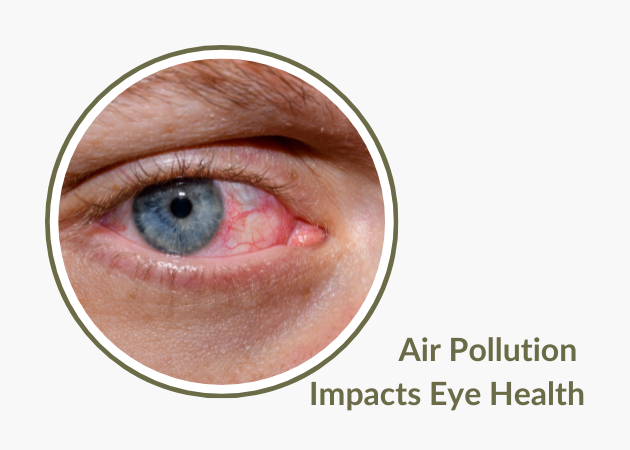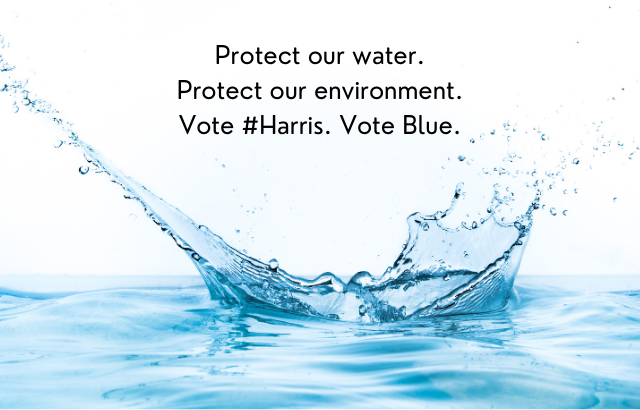
Air Pollution Impacts Eye Health. Credit: activist360
How Air Pollution from Climate Change is Taking a Toll on Our Eyes—and What We Can Do About It
Climate change is often discussed in terms of rising sea levels and extreme weather, but did you know it could also be affecting your eyes? Recent research has found a striking link between air pollution—a byproduct of climate change—and eye health issues like irritation and allergies. For example, high levels of air pollution can double the likelihood of needing treatment for conditions like dry eye syndrome.
Understanding the Science
What is Particulate Matter (PM)?
Particulate matter, or PM, is a mix of tiny particles and droplets in the air that come from sources like vehicle exhaust, industrial emissions, and even wildfires. The two main types, PM10 (particles smaller than 10 micrometers) and PM2.5 (smaller than 2.5 micrometers), are small enough to be inhaled or settle on the surface of your eyes. These pollutants are closely tied to human activities that drive climate change, such as burning fossil fuels.
How Does PM Affect Eye Health?
Your eyes are directly exposed to the environment, making them especially vulnerable to pollution. Particles can irritate the surface of the eyes, causing redness, itching, dryness, and even long-term conditions like dry eye syndrome. When exposed to high levels of particulate matter, the protective tear film on the eyes can break down, leading to discomfort and inflammation.
Key Findings from Recent Research
A study conducted in the Denver Metropolitan Area found significant connections between air pollution and eye health:
- Higher Pollution, More Doctor Visits: Visits for eye irritation and allergies increased as pollution levels rose. For example, five days of exposure to PM10 at 110 µg/m³ made patients over twice as likely to seek treatment compared to lower pollution levels.
- PM10 vs. PM2.5: While both types of particulate matter were linked to eye issues, PM10 had a stronger impact, especially during colder temperatures.
- Beyond EPA Limits: Eye health effects were observed even at pollution levels below those considered harmful by the Environmental Protection Agency.
These findings align with broader studies that link air pollution to respiratory and cardiovascular conditions, highlighting air quality as a serious health concern.
Broader Implications
Climate Change as a Health Crisis
This study underscores how climate change is not just an environmental issue—it’s a public health emergency. The pollutants contributing to global warming are also causing immediate harm to our bodies, including our eyes.
Eye Health as an Overlooked Area
While much attention is given to the respiratory and cardiovascular effects of pollution, the impact on eye health often goes unnoticed. This gap in awareness means millions of people could be suffering unnecessarily.
What Can You Do?
While collective action to hold polluters accountable is essential, here are some practical steps you can take to protect yourself and advocate for meaningful change.
Protect Yourself
- Indoors: Use air purifiers to reduce indoor pollution levels.
- Outdoors: Wear protective glasses and avoid outdoor activities on days with poor air quality.
- Stay Informed: Check local air quality advisories and adjust your plans accordingly.
Advocate for Change
- Support local and national politicians and policies that reduce emissions and improve air quality, such as stricter vehicle emissions standards and renewable energy initiatives.
- Join or support organizations fighting for clean air and climate solutions.
Routine Eye Care
- Schedule regular eye exams, especially if you live in areas with frequent air pollution.
- Discuss symptoms like dryness or irritation with your eye doctor, as early treatment can prevent more serious issues.
Summing Up
The link between air pollution and eye health is clear: the higher the pollution, the greater the risk. But this isn’t just about statistics—it’s about our quality of life. By taking steps to protect yourself and advocating for cleaner air, you’re not just preserving your vision but contributing to a healthier, more sustainable world. Remember, protecting our planet isn’t just about saving the environment—it’s about protecting our health, including our eyes!
References:
Patnaik, J. L., Dye-Robinson, A., James, K. A., & Kahook, M. Y. (2024). Association Between Particulate Matter Pollutants and Ophthalmology Visits for Ocular Surface Irritation and Allergy. Clinical Ophthalmology, 18, 3263–3270. https://doi.org/10.2147/OPTH.S485199


